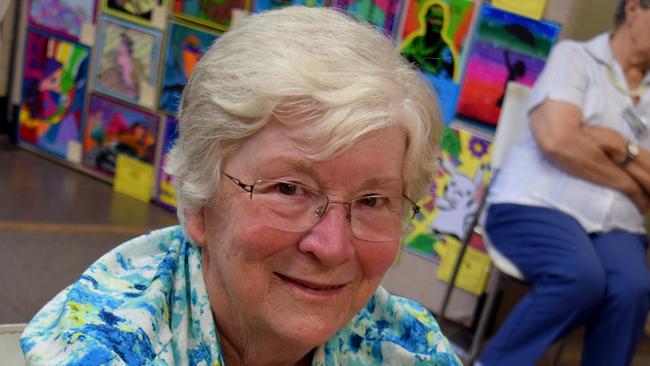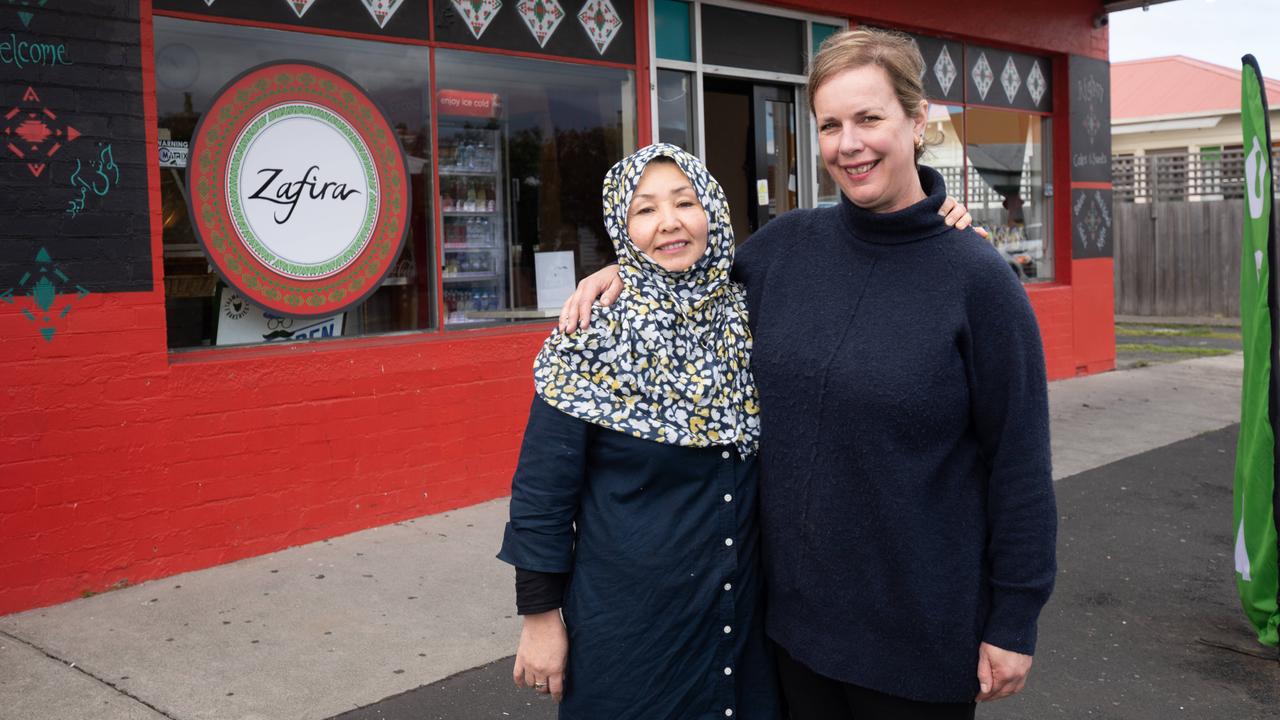Huon’s finest goes on show
The Country Women’s Association shop in Huonville opens only on Fridays, but it’s closed today because most of the members will be along at the Home Industries building at Ranelagh, getting organised for tomorrow’s Huon Show.

Taste Tasmania
Don't miss out on the headlines from Taste Tasmania. Followed categories will be added to My News.
The Country Women’s Association shop in Huonville opens only on Fridays, but don’t go today expecting to buy a cinnamon sponge or bag of broad beans. It will be closed.
That’s because most of the members will be along at the Home Industries building at Ranelagh, getting organised for tomorrow’s Huon Show.
Some start at 9am to set up the room, receive entries (including their own) for the baking and preserves section, and the quilting, knitting, crochet and needlework for the homecrafts section.
Then they will make sure the correct entries keep appearing in front of the judges for assessment, write the certificates for place-getters, display the winners and also-rans, and perhaps be ready to head home by 9pm.
Next door, the Girl Guides are doing teas and sandwiches to keep the workforce sustained as they set up to receive cattle, sheep, alpacas, goats, guinea pigs and poultry. They have to have things ready for the woodchopping, the dog high jump and the old and new farm machinery.
The cricket pitch has to be fenced off to protect it from the hooves of showjumpers and draught horses.
A committee of 16 meets throughout the year to organise the Huon Show, but when it swings into action an army of volunteers is needed – only sideshow alley sets up with paid help for this, the biggest little show in the state.
There are 23 agricultural shows in Tasmania, which has the longest show “season” in Australia. Burnie Show leads off on the first Friday in October and then there is a show on most weekends until Campbell Town, the oldest show in the nation, which is often held in June.
Huon Show started in 1947, over the protestations of the warden (mayor) Alec Parsons. At a public meeting he had called to oppose the idea he said: “Who had ever heard of a successful stock show in a fruit-growing area. Where would the animals come from?”
In fact, the animals have kept coming long after an Apple Queen has ceased to be crowned every year and there were balls and competitions for packing apples or making apple cases.
Not all the animal classes have stayed the distance however. The pig competition went, followed by the shearing competition, caught in the national stoush between graziers and the shearers’ union over the use of wide combs.
Sheep remain in the schedule, winning ribbons but not in the sentiment stakes. “Would this be mutton” asked a visitor of the handler of a champion ram at the show. Handler: “Yes it would.” Visitor: “And where would you eat that?” Handler: “In a can of dog food; there’s no other use for old rams.”
Stephanie Clark married into the Huon, and perhaps because of her involvement in Women in Agriculture or breeding draughthorses and carriage driving, she soon got the tap on the shoulder to join the show committee .
“Basically someone has to die or move out of the district for a vacancy to come up and then a co-opted member fills in,” said Stephanie, now a past president of the committee.
She puts the success of the show down to its keeping a country atmosphere and maintaining the agricultural basis. “We are still a full-on country show,” she said.
The Home Industries pavilion is run by the Ladies Committee, on which Marlene Martyn served for 30 years. After her death in 2014, a special award was established for the one woman who made the best job of cooking the things for which Marlene regularly won first prize – sponge sandwich, uncooked lemon slice, kiss biscuits and pear pickle.
The inaugural competition was not without some quiet contention.
The judges weren’t to know that the winner’s pear pickle, while certainly a perfectly good pickle and true to description, was nothing like Marlene Martyn’s pear pickle. Whereas, the runner-up, Eileen McMullen’s, was the authentic deal – because Marlene gave her the recipe.
However Eileen does her own sponge recipe and her lemon slice is a little different from Marlene’s, but the iced kiss recipe she uses is also Marlene’s – passed on when Eileen would help Marlene out when there was an order for iced kisses for a big morning tea or catering job for the CWA
This is an edited extract from A Table in the Valley, (Tas Food Books $49.95) by Elaine Reeves and Steve Cumper, launched on December 6 at Fullers Bookshop. Pre-orders at tasfoodbooks.com


